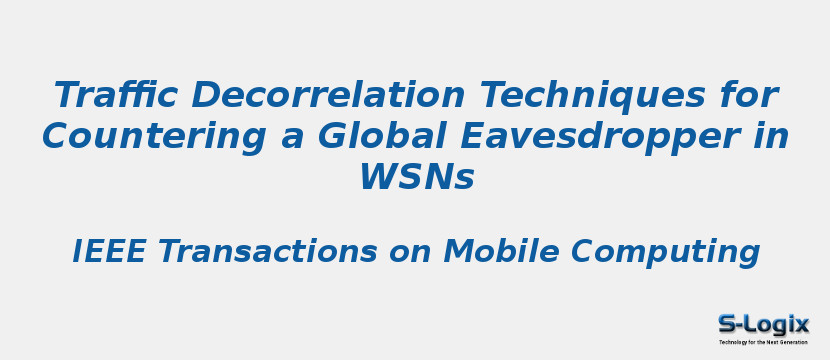Research Area: Wireless Sensor Networks
We address the problem of preventing the inference of contextual information in event-driven wireless sensor networks (WSNs). The problem is considered under a global eavesdropper who analyzes low-level RF transmission attributes, such as the number of transmitted packets, inter-packet times, and traffic directionality, to infer event location, its occurrence time, and the sink location. We devise a general traffic analysis method for inferring contextual information by correlating transmission times with eavesdropping locations. Our analysis shows that most existing countermeasures either fail to provide adequate protection, or incur high communication and delay overheads. To mitigate the impact of eavesdropping, we propose resource-efficient traffic normalization schemes. In comparison to the state-of-the-art, our methods reduce the communication overhead by more than 50 percent, and the end-to-end delay by more than 30 percent. To do so, we partition the WSN to minimum connected dominating sets that operate in a round-robin fashion. This allows us to reduce the number of traffic sources active at a given time, while providing routing paths to any node in the WSN. We further reduce packet delay by loosely coordinating packet relaying, without revealing the traffic directionality.
Keywords:
Author(s) Name: Alejandro Proaño,Loukas Lazos and Marwan Krunz
Journal name: IEEE Transactions on Mobile Computing
Conferrence name:
Publisher name: IEEE
DOI: 10.1109/TMC.2016.2573304
Volume Information: Volume: 16, Issue: 3, March 1 2017, Page(s): 857 - 871
Paper Link: https://ieeexplore.ieee.org/document/7479541
